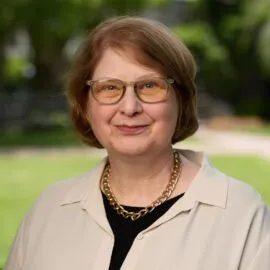
CoIIN to Advance Care for Children with Medical Complexity
CoIIN: Collaborative Improvement and Innovation Network
The network aims to improve the quality of life for children with medically complex conditions, improve the well-being of their families, and increase the cost-effectiveness of their care.
- Impact Areas:
- Health & Mental Well-being
- Human Rights & Social Justice
The HRSA Maternal and Child Health Bureau funded the CoIIN in 2017 to test and spread promising care-delivery strategies and payment models for children with medical complexity.
Children with medical complexity have significant, chronic health problems that affect multiple organ systems, resulting in functional limitations, high health care need or utilization and often the need for or use of medical technology. Their care is typically fragmented, and their families often experience stress and financial hardship. Providers routinely encounter barriers to delivering high-quality, value-based health care that supports the physical, emotional, mental and social well-being of these children and their families.
Network
- 10 state teams
- 148+ team members
- 2,290 children enrolled in interventions
- 5 partner organizations
- 20-member national advisory committee
Representing
- Title V MCH/CYSHCN staff
- Family leaders
- Family-led organization representative(s)
- Youth with medical complexity
- Complex care practitioners
- Primary care medical home representative(s)
- Children’s hospital representative(s)
- Medicaid and CHIP liaison(s)
- Care coordinators & managers
- Research and quality improvemen
Family Partnership
- 37+ family representatives across 10 state teams
- 4 family leaders on the National Advisory Committee
- Family Voices National is a key collaborative partner
- Family Engagement in Systems Assessment Tool (FESAT) employed
- Family Engagement spotlight in each e-newsletter to highlight activities and best practices
What We Do and How
The Boston University leadership team and collaborative partners offer technical assistance to state teams that include:
- Coaching Calls
- Webinars
- Learning Sessions
- Leadership Consultation Visits
- Expert Consultation
- Office Hours
- Resource Library
- Care Coordination Academy
- CMC and COVID-19 ECHO
- COVID-19 Pop-Up Webinars
- Telehealth Data Collection
A partnership with the American Academy of Pediatrics, this program leveraged tele-mentoring video conferencing technology to increase inter-professional participant knowledge, capacity, comfort and competence in caring for CMC during the COVID-19 pandemic.
- 212 participants, including CoIIN members and providers nationwide
- 28 ECHO sessions and topics
- 20 guest speakers
- 15 faculty
- 93.3% of participant responders were satisfied with the ECHO and found it a valuable use of their time
- 1224 family surveys
- 342 staff surveys
- 93 key informant interviews
- 27 family focus groups
- 25 family engagement assessments (FESAT) completed by state teams
- 4 state datasets on utilization pattern
National Care Coordination Academy
This partnership between the CMC CoIIN and Boston Children’s Hospital:
- Engaged five state teams and nine external teams in collaborative learning and peer mentoring
- Focused on coordination implementation, measurement of effectiveness, and sustainability
- Provided ongoing technical assistance to member team
Dissemination Products
- 96 products developed by the Network in the Implementation Library
- 60+ presentations to date by Boston University, partners, and state teams
- 10 articles and manuscripts
- 11 infographics
- 30+ graphic recordings
State Team Work
While all CoIIN teams worked toward common network objectives, they each focused on individual projects specific to their state, service delivery system, and patient population. Common threads among state teams’ individual projects included improving care coordination, creating Shared Plans of Care (SPoCs) with families, and ensuring all patients had access to a medical home.
Our multidisciplinary collaborative consists of federal, state, and local leaders working together to improve care delivery and payment models for CMC and their families.
Ten interdisciplinary state teams, composed of Title V Maternal and Child Health Program and Medicaid leaders, family leaders, providers, and other stakeholders, each led distinct four-year quality improvement projects aimed at health care delivery. These state teams worked within the CoIIN to develop, implement, and test new and innovative care delivery strategies and/or payment models for CMC.
State teams continuously share data to learn from each other’s quality improvement efforts. Over the course of project implementation, they received guidance from our staff and a National Advisory Committee of experts in an array of relevant fields. Technical assistance, training, and coaching was provided by nationally respected collaborative partners. Presently, state team work centers on dissemination, spread, and sustainability of their projects.
Alabama
Focus: Improving care coordination for CMC
Work Highlight: Provided families with a Care Notebook developed by Family Voices Alabama to establish parent-to-parent support and facilitate care coordination
Colorado
Focus: Improving collaboration and communication between family, primary care, and subspecialty providers using a co-management approach
Work Highlight: Created a Role Clarification Tool within the electronic medical record system so that families can quickly access whom to contact for each of their child’s needs
Indiana
Focus: Creating a primary-tertiary care coordination collaborative to produce comprehensive, functional, and fluid SPoCs for CMC and their families
Work Highlight: Developed a comprehensive care coordination curriculum to train and mentor nurse coordinators
Kentucky
Focus: Utilizing teleconferencing technology for patient-centered care planning services and creating a comprehensive clinic for CMC recently discharged from the NICU
Work Highlight: Utilized existing Virtual Care Team Conference framework to quickly implement telehealth visits for CMC during the COVID-19 pandemic
Massachusetts
Focus: Developing a Shared Surgical Plan of Care for children undergoing hip, spinal fusion, or baclofen pump surgery to identify pre-surgical medical needs
Work Highlight: Focused on family engagement to make the perioperative process smoother and safer for CMC and their caregivers
Minnesota
Focus: Partnering with families to implement family-centered SPoCs to move more care into the community and decrease acute episodes and hospitalizations
Work Highlight: Integrated paid parent advisors into the project team as equal partners for ongoing feedback and improvement
Oregon
Focus: Preparing young adults with medical complexity to transition to adult care providers through the use of a SPoC and Health Passport
Work Highlight: Created a one-year, three-stage program to guide patients and families through the process of establishing adult primary care
Texas
Focus: Building a family-centered, integrated care delivery system that eliminates fragmentation, optimizes satisfaction, and improves health outcomes
Work Highlight: Developed a Touchpoints graphic system to analyze time and effort spent on care tasks for individual patients
Washington
Focus: Helping families of infants with medical complexity who were recently discharged from the hospital build resiliency by engaging with public health, community, and medical resources
Work Highlight: Increased the percentage of families engaging with Early Intervention services by following up with families and providers
Wisconsin
Focus: Improving the service delivery system for CMC through the development of care coordination tools and supporting enrollment of eligible CMC into the Children’s Long-Term Supports (CLTS) waiver program
Work Highlight: Developed a Goal Card tool to break down complex needs into achievable goals that are meaningful for the family
Key Partners
Convergent partnerships are at the heart of what we do. We are proud to partner with federal and state agencies, non-profit and advocacy organizations, philanthropic institutions, and universities to elevate social work leadership and to create equitable health and mental health care systems for all.
This project is supported by HRSA of the U.S. Department of Health and Human and Services Administration (HRSA) of the U.S. Department of Health and Human Services (HHS) under grant number #UJ6MC32737: Health Care Delivery System Innovations for Children with Medical Complexity ($2,700,000 annually). This information or content and conclusions are those of the authors and should not be construed as the official position or policy of, nor should any endorsement be inferred, by HRSA, HHS or the U.S. government. Anna Maria Padlan, HRSA/MCHB Project Officer

